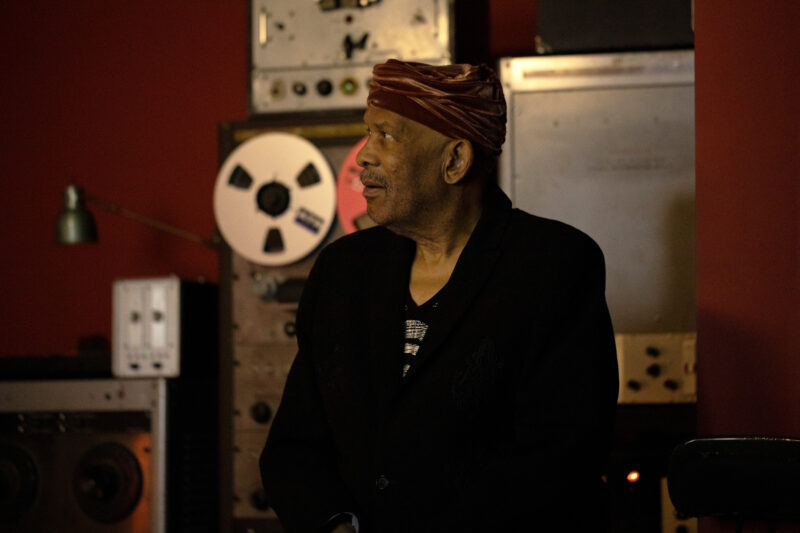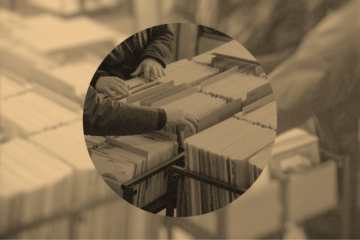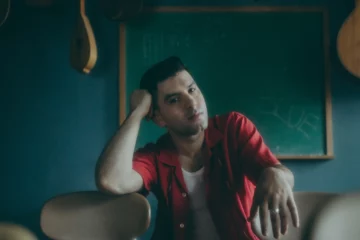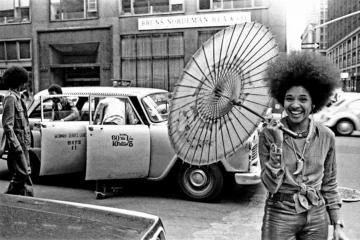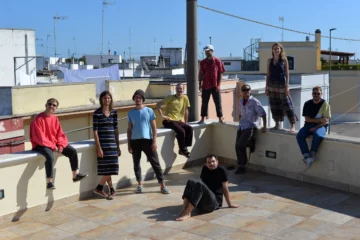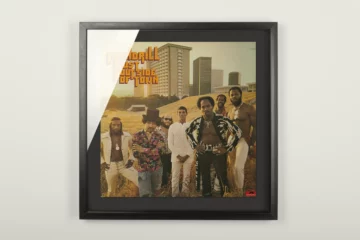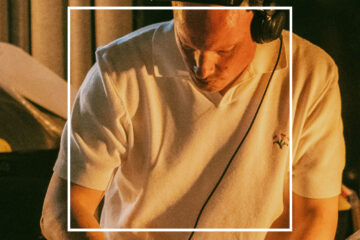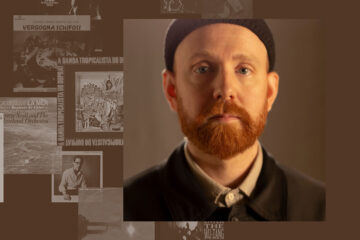Only few musicians have been sampled more often than Roy Ayers. A Tribe Called Quest (ATCQ), Dr. Dre, Eminem, Pharrell Williams, Naughty By Nature, Public Enemy, Nas, Mary J. Blige, Jungle Brothers, Pete Rock, Common, Erykah Badu, but also artists as diverse as Michael Jackson, Armand Van Helden, Mousse T., Masters At Work, The Prodigy, Jamiroquai, 4Hero, Linkwood, Kerrier District or Henrik Schwarz – and again and again Madlib – are just a few of the more well-known names, that have used the music of the vibraphonist, singer, songwriter and arranger. The web database Whosampled.com lists 708 songs and tracks with samples from Roy Ayers. Although unlike many other musicians Ayers is very benevolent to this practice (_»A lot of people sample my music, a lot of artists. And I’m very happy they sampled it because I feel good about it. I feel very good about it«, he said in an interview five years ago with the London based Bonafide Magazine), the undisclosed figure is likely to be considerable.
»Whatever you want to call the genre, that Ayers created with his music – space funk, mellow groove, jazz funk –, whether you wanna call him godfather or architect of neo-soul or acid jazz: He holds a unique position in the history of black music, which make him different to Lonnie Liston Smith, different to Isaac Hayes, different to Curtis Mayfield or any of the other soul jazz funk legends in the play«, says Peter Adarkwah when asked about his personal connection to the music of Roy Ayers. »He is also more accessible than Cal Tjader or Bobby Hutcherson, two other great vibe players, he is more sort of middle ground, maybe not Pop directly, but he has something like a universal appeal actually«, Adarkwah puts the specific qualities of Ayers in a nutshell. The British DJ and producer knows what he’s talking about: With his label Barely Breaking Even, BBE for short, founded in 1996 with Ben Jolly, Adarkwah played a strong role for the fact, that Roy Ayers experienced a renaissance at the turn of the millennium, since he was able to access unpublished material from the seventies. Releases such as »Virgin Ubiquity: Unreleased recordings 1976-1981« also caused a large number of remixes. Songs like »Running Away«, »We Live In Brooklyn, Baby«, »Searchin ‘«, »Red, Black & Green« or »Everybody Loves The Sunshine«, produced by Ayers in the 1970s, acted as blueprints for the then emerging nu jazz. Not least due to the massive airplay by the BBC radio DJ institution Gilles Peterson in his popular »Worldwide« program, Ayers was once again on everyone’s lips.
You can find the Vinyl Records by Roy Ayers in the [Webshop of HHV Records](https://www.hhv.de/shop/de/suche/i:A182842_7684_8147_2054_12828_118422_4034F0N4S14U9?term=roy+ayers)
More than three decades in the music business were already behind him then. Born 1940 in Los Angeles and growing up in a music-loving household – his father played the trombone, his mother was a piano teacher -, Ayers began to play music in his younger days. At the tender age of five his parents took him to a concert by Lionel Hampton, who gave him a set of vibraphone mallets after the performance. That’s how it all started. Soon he found himself on stage with jazz greats like Teddy Edwards, in 1966 he joined flutist Herbie Mann and went to New York. At the beginning of the seventies he founded his band Ubiquity, the hard bop of his early days increasingly gave way to his interest in jazz funk and soul, and later also R&B. In 1973 he produced the much-noticed soundtrack for the blaxploitation film »Coffy« starring Pam Grier. Towards the end of the decade, he joined forces with the afrobeat pioneer Fela Kuti and accompanied him on a tour of Nigeria; together they launched the label Uno Melodic Records.
Being the producer of »Come Into Knowledge«, the only album of the formation RAMP he founded in 1977 (an acronym for Roy Ayers Music Productions), he was responsible for a proto-disco milestone that is still popular today (and very sought after in it’s original edition) . It also includes a cover version of »Everybody Loves The Sunshine«, which Ayers recorded with Ubiquity in Jimi Hendrix’s Electric Ladyland studio a year earlier. »It was a beautiful, hot, sunny day and I just got this phrase in my head: ›Everybody loves the sunshine‹«, Ayers recalled in an interview with the British daily The Guardian three years ago about the production circumstances of his biggest hit: »I started singing: ›Feel what I feel, when I feel what I feel, what I’m feeling‹. Then I started thinking about summer imagery: ›Folks get down in the sunshine, folks get brown in the sunshine, just bees and things and flowers‹. It was so spontaneous, it felt wonderful.« A great moment of inspiration, that Ayers apparently fills with gratitude even decades later: »The song changed everything for me. It’s still the last song of my show. People always join in and it’s been sampled over 100 times, by everyone from Dr Dre to Pharrell Williams. It seems to capture every generation. Everybody loves the sunshine – except Dracula.«
However to rest on his laurels is far from the soul jazz legend, that celebrates his 80th birthday in September. To this day, Ayers has been on tour again and again, and he was last seen in Europe in 2019. Ayers continues to tour to this day and was last seen in Europe in 2019. After appearing on »Cherry Bomb« by Tyler, The Creator in 2015, the label Jazz Is Dead, which was recently launched by the American producer Adrian Younge, now not only publishes as the first catalog number the compilation »Adrian Younge & Ali Shaheed Muhammad: Jazz Is Dead« including a new song by Ayers, but with »Roy Ayers JID 002« – 17 years after Ayers’ last studio album »Mahogany Vibes« – a complete long player with eight new tracks, which sounds like a lost record from Ayers’ golden age in the Polydor years of the seventies pretty much. »His sound is very cosmic and melodic. His groove based fusion of jazz and soul is what really stimulates my creative mind, Younge enthuses about the collaboration: He plays with such emotion and conveys complicated messages very simply. His music is all about feeling, and it’s not always easy to get that across in music.« And Shaheed Muhammad, once producer and DJ at ATCQ, adds: »His songs are nomadic, sensuous, nonconformist, fluid and transcendent. His music defines the spirit of being soulful, funky and black. Not to be cliche but his art is truly the vibration of sound and soul becoming one. Or, to put it simply: Roy makes music that makes you feel good.«
You can find the Vinyl Records by Roy Ayers in the [Webshop of HHV Records](https://www.hhv.de/shop/de/suche/i:A182842_7684_8147_2054_12828_118422_4034F0N4S14U9?term=roy+ayers)

